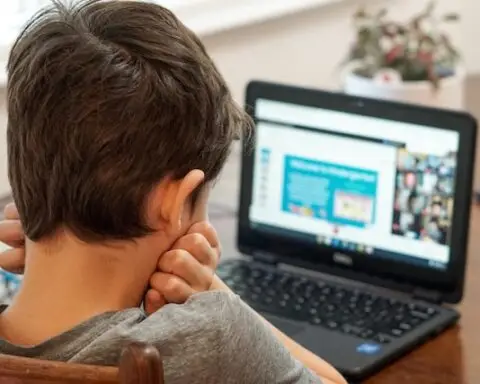It can make a big difference in the lives of kids’ families to teach them good habits. When kids have a pattern, they feel safe and in charge. They also get order and know what to expect. When you want to make habits that work, it takes time, consistency, and new ideas. You’ve come to the right place if you want to find easy ways to plan your day with your family. Next, let’s look at five easy and quick ways to help your kids form habits.
Setting routines for your kids can change everything for both you and them, giving them a sense of comfort and order. SSP Daily, a website that gives people news, tips, and tools to make their daily lives better, says that there are a lot of good ways to help you make these habits stick. To begin, it is important to be consistent. Making sure that meals, bedtime, and chores are all done at the same time every day helps kids know what to expect. Second, let your kids help you plan so they feel like they own the project and are responsible for it. Third, charts are your way to peace of mind. Make the daily routine a mandatory point of upbringing. And of course, be patient and flexible when communicating with children.

1. Begin with easy, clear steps
It’s best to keep things easy when teaching kids habits. When there are too many steps or too hard of jobs, kids, especially younger ones, can get lost very quickly. Take small steps at first that you can handle. Some of the first things that people do in the morning are brushing their teeth, getting ready, and eating.
Make sure your child understands what needs to be done. It is important to calmly explain what follows so that the child has an idea of the process itself. In such cases, you can use visual tools. Visual diagrams, numbered lists, a scheme of pictures – all this will help your child. The presence of schemes simplifies the life of children and acts as a reminder during the day.
Making schedules visually
For kids who learn best by seeing, a visual plan is very helpful. You can show what you do every day with words, pictures, or symbols. This plan should be put somewhere public, like the kitchen or living room, so your child can easily find it. Encourage them to cross off or move the picture as they finish each job. This will give them a sense of independence and accomplishment.
2. Stick to your rules but be flexible
Remember that consistency is your key when communicating with children. A daily routine will simplify your life. On a subconscious level, the child will feel protected, as he will know what is going on. When they are sure that certain events happen one after the other day after day, the child will have a sense of peace and trust.
But life with kids is unexpected, so it’s also important to be able to adapt. Routines will need to be changed some days, maybe because of an illness or a special event, or just because your child needs more rest. Structure and flexibility must be balanced so that changes can happen while the general routine stays the same.
Getting used to the changes in life
When there are changes, try to let your child know about them ahead of time if you can. For instance, if you need to go to the doctor and your normal after-school routine will be affected, please let your child know ahead of time. This communication helps them understand and get used to the changes, so they can feel safe even if the plan changes.
3. Have your child help you plan
Kids are more likely to keep up bad habits if they feel like they own them. It can really make a difference to let them help planned things. Ask them what tasks they think are most important when you make the plan. What order do they like to do things? They will both feel better about following the plan and be more excited about it if they work together.
You might be amazed at how smart some of their thoughts are. When you use their thoughts, you teach them useful things about how to decide what to do and save time. Plus, they’ll be more likely to follow through since they helped make the plan.
4. Use rewards to help kids learn
A great technique would be to use encouragement. Children respond very positively to possible treats or toys that they can get for helping their parents. Do not forget to praise the child. Show your interest in her work. Do everything so that your baby feels that you are on his side.
You can also use reward systems to help people stick to their habits. Younger kids can be rewarded with stickers, more time to play, or a small treat. For bigger kids, extra screen time or the choice of which family movie to watch can be very motivating.
Setting up a system for rewards
Make a reward chart that shows how well your child is following the plan. They get a sticker or checkmark every time they finish a job. They get a reward when they hit a certain number of points. Not only does this system reward routines, it also teaches people how to set goals and wait to get what they want.
5. Show how to act
Kids learn by seeing what their parents do. Setting an example for your child is important if you want them to follow a plan. As you get ready for the day, do your jobs, or get ready for bed, show them how you stick to your daily routine. If they see that you stick to habits, they are more likely to do the same.
Setting a good example
Being consistent doesn’t just mean following your child’s pattern; it also means sticking to your own. Your child may not understand the value of habits if you aren’t consistent. Show how habits help make the day go more smoothly and with less stress. At that point, they’ll understand how habits can make their lives better.
In conclusion
Making habits with your kids doesn’t have to be hard. Start with small steps, be consistent while still being flexible, let your child help plan, use positive reinforcement, and show them how to act in the right way. This will help you make a daily routine that works for everyone. To achieve your goal of making your kids feel safe and responsible while also pushing them to be independent, keep this in mind. Some work and time can help make habits a normal part of your family’s life. This will make days less stressful and more peaceful.









